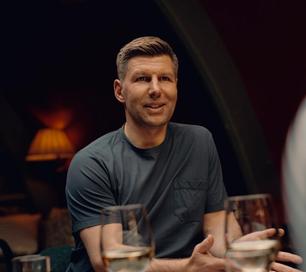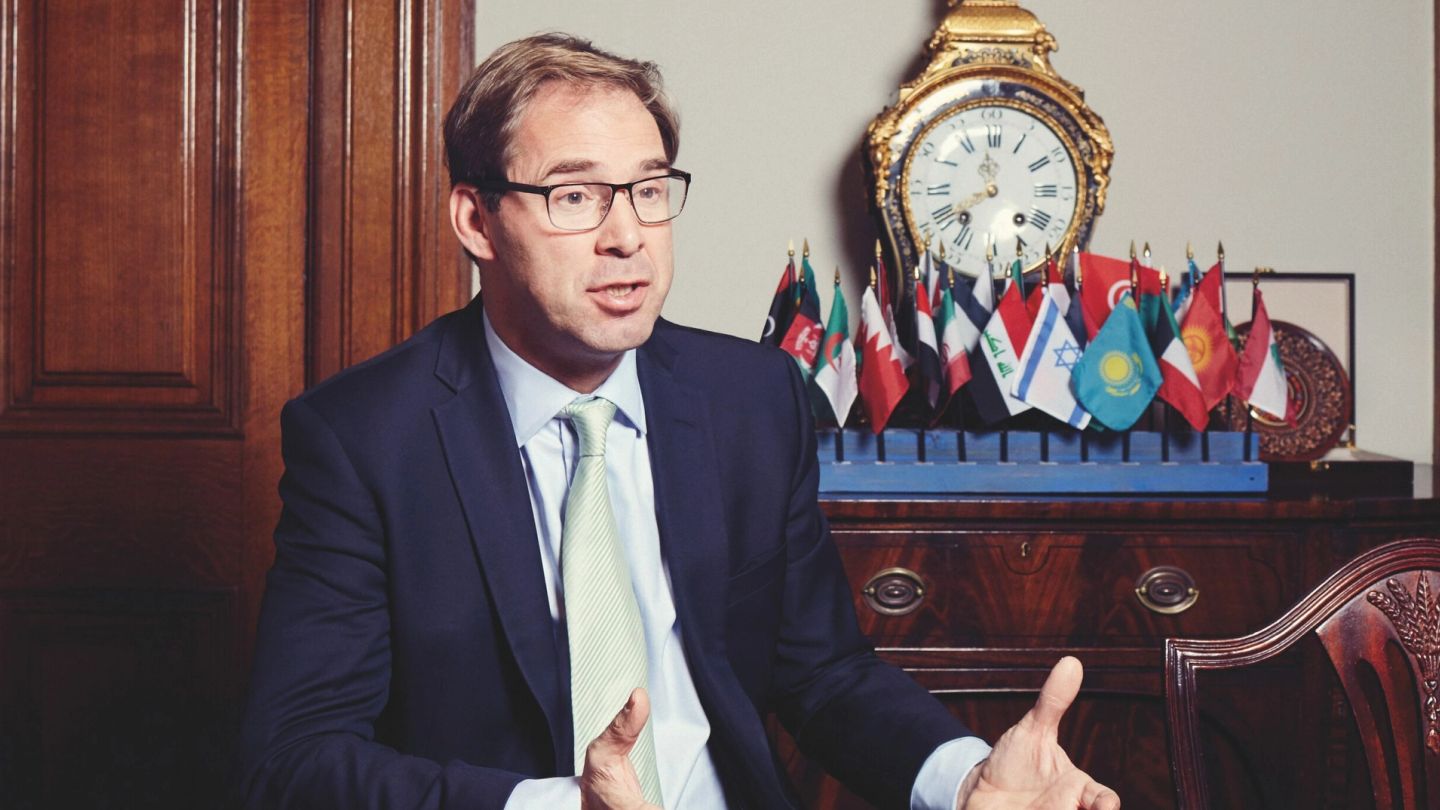

Words: Gentleman's Journal
Working with intelligence services around the globe, Tobias Ellwood, Minister for the Middle East and Africa, is tasked with protecting the UK from the increasing threat of home-grown and international terrorism.
‘Sadly, I lost my brother in the Bali bombing in 2002,’ Ellwood explains. ‘Unfortunately, the very sad experience I went through in Bali was all too common. From identifying my brother’s body, which I had to do myself, to getting the various certificates needed to allow repatriation of his body back to the UK, there was no help through the process. I actually ended up nailing the lid of the coffin down myself. That can’t be right.’
Before he had even entered politics, Ellwood came home to work with the then Foreign Secretary, Jack Straw, on a list of recommendations to help the Foreign Office (FCO) put mechanisms in place to provide the support for Britons caught up in security incidents abroad.
Today, when an event takes place, FCO officials immediately establish a unit to look after the Britons who have been involved, whether they are the bereaved, waiting to find out what has happened to their loved ones, or the injured who need to be brought home. ‘With the Sousse attack in Tunisia in 2015, I went out myself as a Minister. I was very pleased to see how much more we have improved our process to provide support.’
Unfortunately attacks like this have become an all-too-common part of his day job. ‘People were enjoying themselves in a beautiful part of the world when a radicalised individual, who had spent time in Libya, decided to do something ruthless and barbaric in a country that didn’t have the capability to deal with it,’ he says. ‘This is the world we are currently living in.’
The biggest threat facing Britain today is not terrorism directly, but the ‘growth of extremism’
But according to Ellwood, the ‘biggest threat facing Britain today’ is not terrorism directly, but the ‘growth of extremism’.
‘If you have a threat that’s a state or non-state actor, it can be very simple or straightforward for a collective force to deal with. In the case of Daesh [IS], you are dealing with an ideology, you’re dealing with something very different.
‘People willing to die for their cause have been wrongly convinced that they’ll gain a fast-track to paradise. Promises are made that if they do these terrible things, they’ll be rewarded. We have to challenge the messages. We need to recognise why this is the biggest 21st-century threat.
‘Just defeating Daesh on the battlefield, as we are doing in places like Mosul, isn’t enough. The internet, good though it may be, is also a double-edged sword because it’s reaching across the globe from Britain to North Africa, and people are reading this stuff, believing it, and then taking the journey to join extremist operations. And I don’t simply just mean Daesh in Iraq and Syria, but you’ve got al-Shabab in Somalia, you’ve got Boko Haram in Nigeria, you’ve got Ansar Bait al-Maqdis in northern Egypt. The next terrorist group will adopt the same approach to recruitment in order to get their message across.
‘We’ve got to work with internet companies, governments and communities because that’s the best way to prevent a vulnerable person from taking this journey. We need mums and dads to say: “This isn’t what Islam is all about and this isn’t what passive religion is all about.”’
Britain is now at the heart of a coalition of more than 70 countries that are ‘teaming up’ to combat Daesh. ‘It’s not just about Britain, it’s about working as a collective. Our strategic communications package is an entire section of the FCO devoted to sharing our knowledge of how countries across Africa and the Middle East can be aware of who is being recruited. The terrible attacks that we have seen in Germany and France have been prompted by this ideology gaining a foothold. It’s not just a challenge to Britain, but most of the globe.’
Many have claimed that a post-Brexit Britain will be less well-equipped to deal with security threats outside of the European Union
Many have claimed that a post-Brexit Britain will be less well-equipped to deal with security threats outside of the European Union. Ellwood however, who campaigned to remain a part of the EU, disagrees.
‘We have deep relationships, both historically and diplomatically, with places all over the world and we pride ourselves on the level of understanding that we put into what is happening in these countries – particularly post-Brexit,’ he says. ‘Ironically, I think it’s had the opposite, effect, but perhaps that hasn’t fully come to light yet. Nobody understood the detail of what the consequences would be, but Theresa May added a lot of clarity in her recent speeches. It means us making our own decisions, and no longer needing the consensus of 27 nations. Instead of us stepping back in the world, it has liberated us.’
According to Ellwood, lots of other countries agree. He claims that when talking with the President of Uganda, Yoweri Museveni, he was ‘welcoming the fact that we had left the EU because he saw this as an opportunity for more bilateral relationships to develop with his country’.
He adds: ‘As the fifth-largest economy in the world, and as one of the few nations in the world that is committed to our two per cent GDP for defence, 0.7 per cent on International Aid as well, we punch way, way above our weight. We’re leaders in aerospace, financial services and in cultural institutions like our Premier League.
‘Especially in the huge chunk of the world I’m responsible for.’ This is supported by the fact that there is ‘an enduring friendship, a trust and a recognition that Britain is one of the few countries in the world that has a means and aspiration to be a force for good in the world.’


